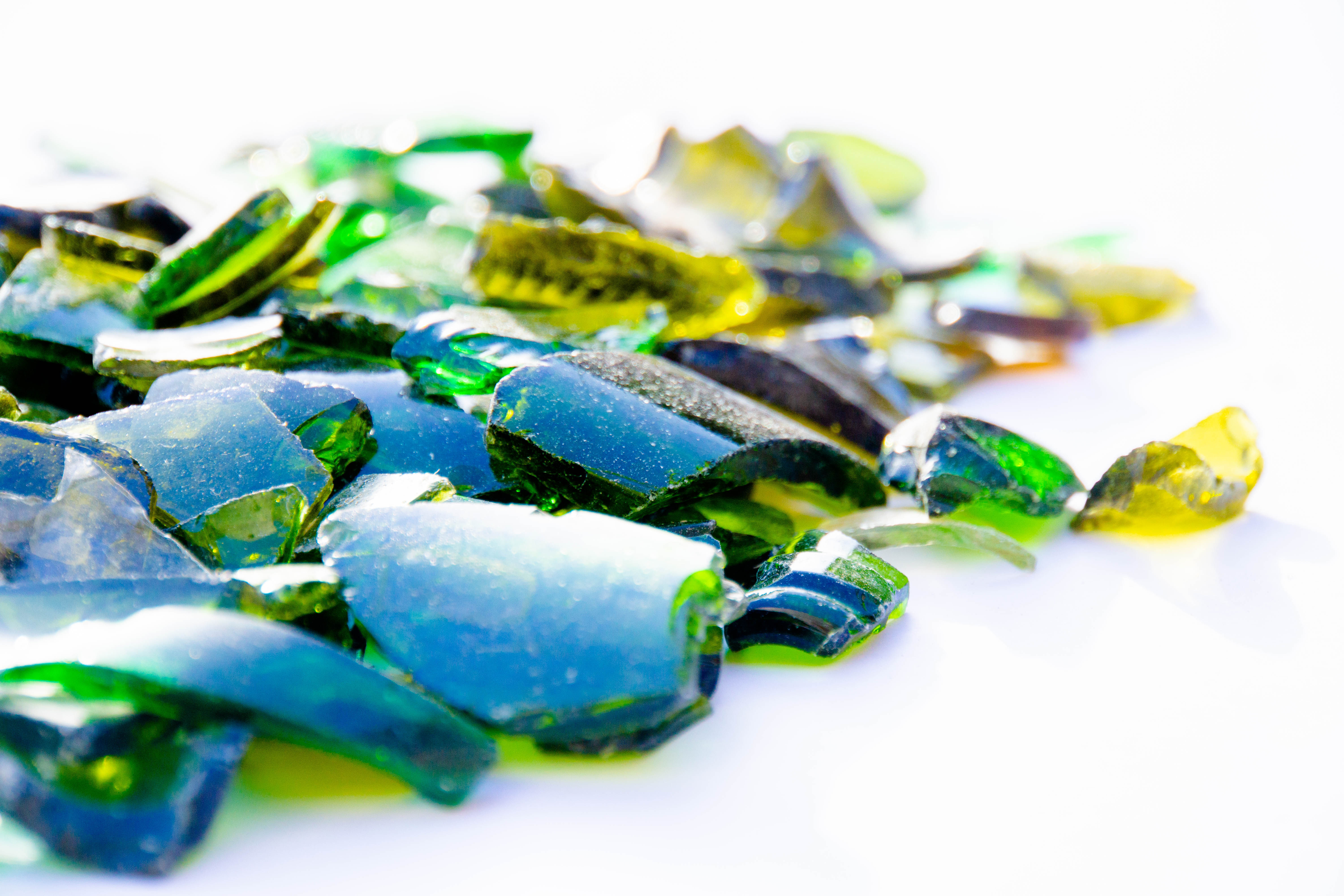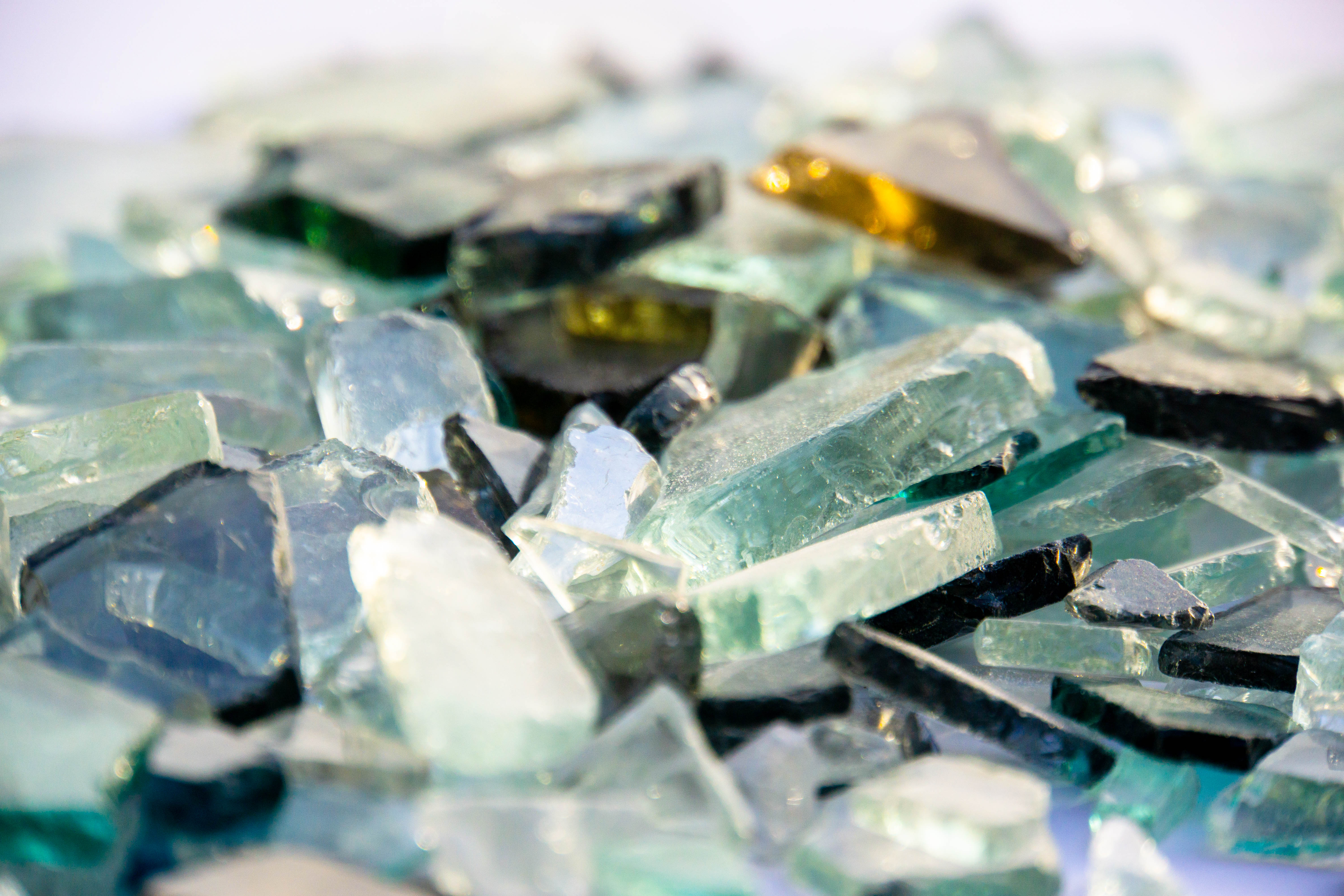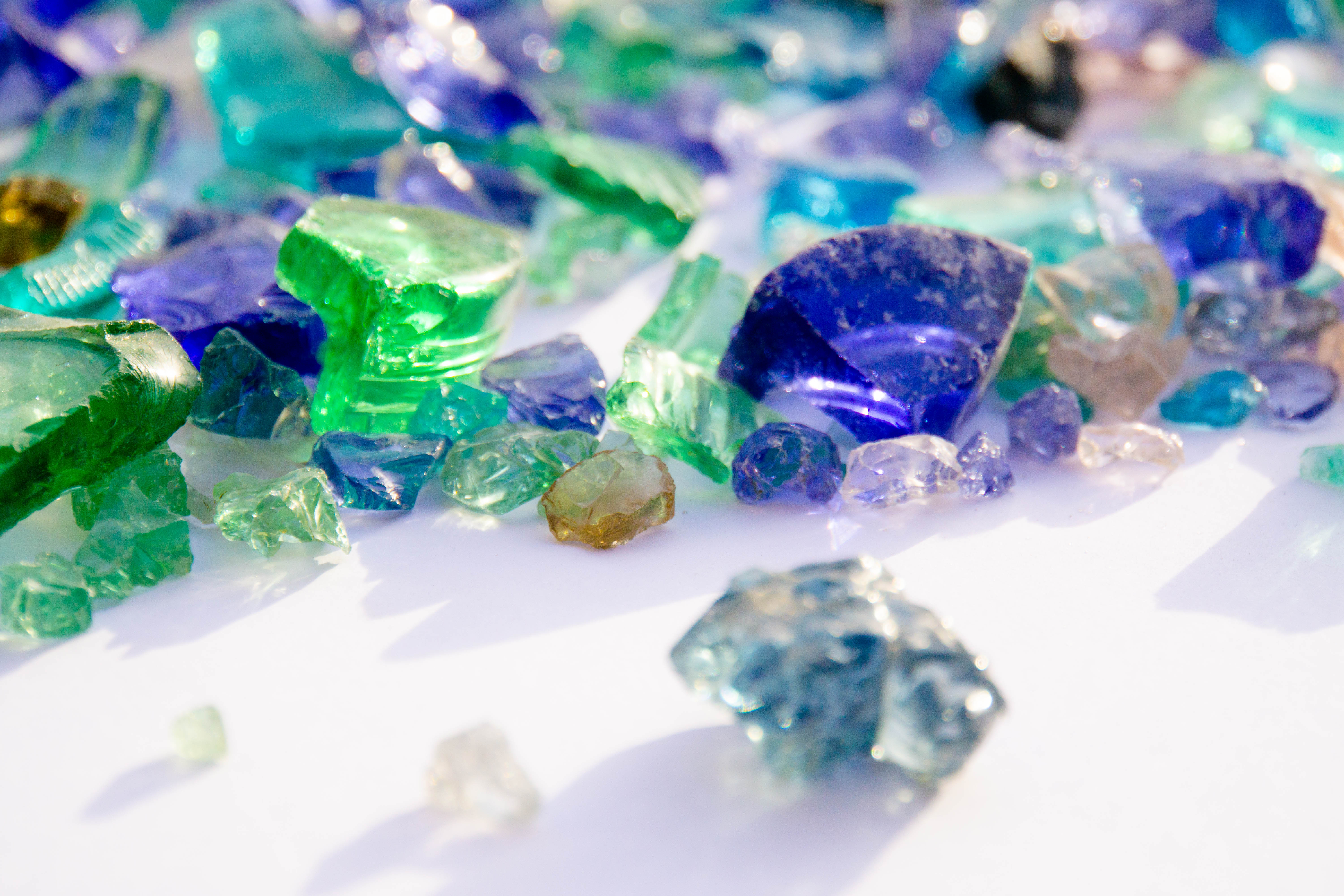Hollow glass
Hollow glass is used mainly to make packaging or table glassware: bottles, jars, drinking glasses, crockery, etc., so it is part and parcel of our daily life.
Glass can be of household origin, from everyday household consumption, or industrial (from glass manufacturers or bottlers). We refer to such glass as production scraps.
The most annoying type of pollution in raw glass consists of infusible bodies: plates, porcelain cups, earthenware, ceramics, etc.
Plugs, plastics, and metals are other types of pollutants to be extracted from the glass stream.
Flat glass
Flat glass first appeared in Roman times. Called cast glass at the time, it was the first "glass" solution to insulating the openings of the richest dwellings.
Part of the family of glass manufactured in sheet form, raw glass for recycling comes mainly from the building and automative sectors.
It is therefore subject to contamination specific to these fields of activity and requires a particular treatment process.
This type of glass is often heavily processed (laminated, assembled into double glazing, coated, etc.).
The waste present in flat glass often consists of metal and plastic materials, but also rubber, silicone or wood.
Special glass
This type of glass, which requires more complex specific treatment, comprises mirror glass, reinforced, laminated multilayer glass, etc.
If you have any questions, please do not hesitate to contact us.


 Our products
Our products

